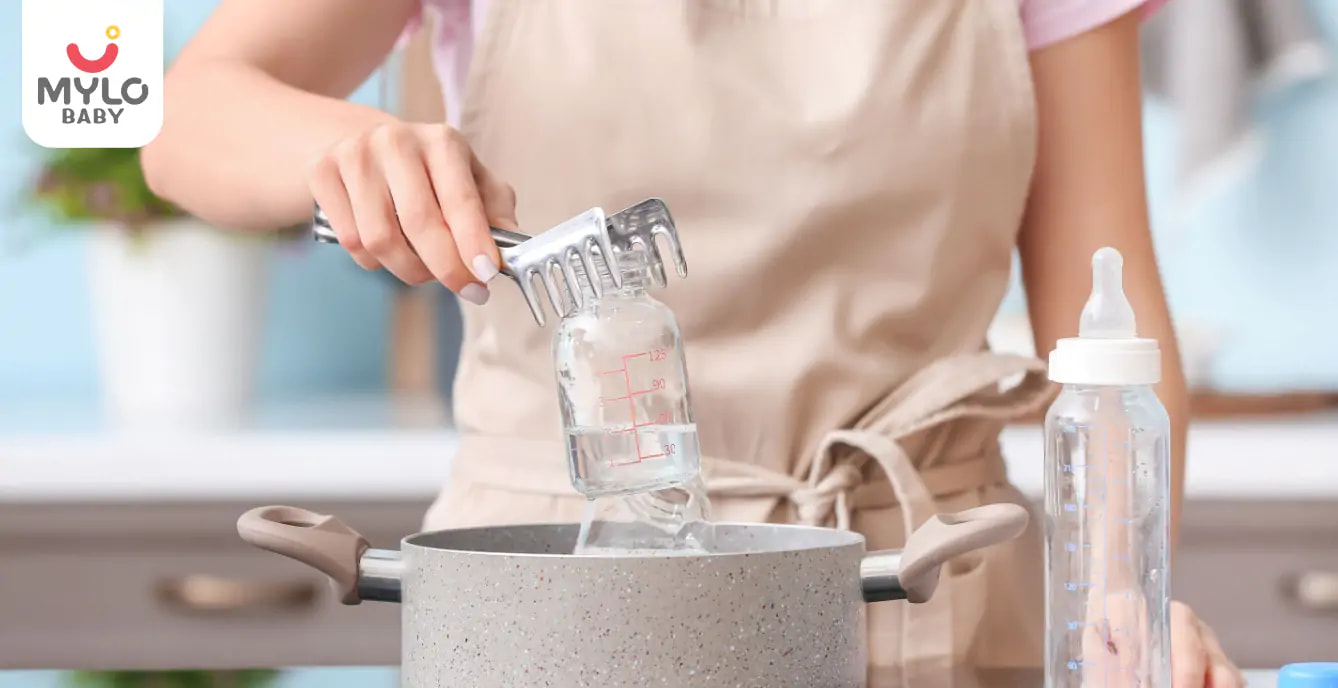- Home

- Feeding Bottles 101: Guide to Proper Cleaning, Sterilizing & Storage
In this Article
Feeding from a Bottle
Feeding Bottles 101: Guide to Proper Cleaning, Sterilizing & Storage
Updated on 12 September 2023
Feeding bottles are an essential tool for parents with infants. They provide a convenient way to feed your baby and ensure that they receive the necessary nutrients to grow healthy and strong. However, it's important to note that baby bottles require proper cleaning, sterilization, and storage to prevent the growth of harmful bacteria that can harm your baby's health.
Importance of Proper Bottle Cleaning and Sterilization
Bacteria can quickly grow in feeding bottles, especially when milk or formula is left to sit in them for extended periods. These bacteria can cause infections, which can be life-threatening for infants. Proper bottle cleaning and sterilization are critical to keeping your baby safe and healthy.
How to Clean a Baby Bottle: Step-by-Step Guide
Cleaning baby bottles is a simple process that involves a few steps:
1. Disassemble the bottle
Start by disassembling the bottle, including the nipple, collar, and ring.
2. Rinse the bottle
Rinse the bottle and its parts with warm water to remove any leftover milk or formula.
3. Wash with soap
Use a mild dish soap and a bottle brush to clean the bottle and its parts thoroughly. Pay extra attention to the nipple, which can be difficult to clean.
4. Rinse again
Rinse the bottle and its parts thoroughly with warm water to remove any soap residue.
5. Dry the bottle
Allow the bottle and its parts to air dry on a clean towel. Alternatively, you can use a bottle drying rack.
You may also like: Feeding bottle or sipper: Which is better for your baby?
How to Sterilize Bottles: Different Methods Explained
Disinfecting baby bottles is an essential step in the cleaning process. There are several ways to sterilize feeding bottles. Here are a few common methods:
1. Boiling water
Bring a pot of water to a boil and place the disassembled bottle and its parts in the water for 5 minutes. Make sure that all parts are fully submerged and not touching the sides or bottom of the pot.
2. Electric steam sterilizer
Use an electric steam sterilizer to sterilize the bottle and its parts. Follow the manufacturer's instructions for proper usage.
3. Microwave steam sterilizer
Use a microwave steam sterilizer to sterilize the bottle and its parts. Follow the manufacturer's instructions for proper usage.
4. Chemical sterilization
Use a chemical sterilizing solution to disinfect the bottle and its parts. Follow the manufacturer's instructions for proper usage.
You may also like: How to Bottle-Feed Your Baby
Storing Bottles: Dos and Don'ts
Proper storage of feeding bottles is just as important as proper cleaning and sterilization. Here are a few dos and don'ts of bottle storage:
- Do store bottles in a clean, dry place.
- Don't store bottles in direct sunlight or near sources of heat.
- Do store bottles with their caps or lids on to prevent contamination.
- Don't store bottles with leftover milk or formula.
Common Mistakes to Avoid in Bottle Cleaning and Sterilization
Many parents make common mistakes when cleaning and sterilizing baby bottles. Here are a few things to avoid:
- Don't reuse old bottles without proper cleaning and sterilization.
- Don't use bleach or harsh chemicals to clean bottles.
- Don't use a dishwasher to clean bottles.
- Don't skip the disinfection step in the cleaning process.
You may also like: 7 Common Bottle Feeding Problems
How Often to Clean and Sterilize Bottles?
It's recommended that parents clean and sterilize feeding bottles after each use. This helps prevent the growth of harmful bacteria that can cause infections. It's also important to replace bottles and nipples every few months to ensure that they are in good condition and not harboring bacteria.
Conclusion: Keeping Your Baby Safe and Healthy
Proper cleaning, sterilization, and storage of feeding bottles are essential to keeping your baby safe and healthy. By following these guidelines, you can ensure that your baby's bottles are free of harmful bacteria and provide a safe and convenient way to feed your little one.
Remember to clean and sterilize feeding bottles after each use and replace them every few months to ensure that they are in good condition. Your baby's health and wellbeing depend on it.
Also read: Which Feeding Bottle Is Best for Babies: A Guide for New Parents



Written by
Ravish Goyal
Official account of Mylo Editor
Read MoreGet baby's diet chart, and growth tips

Related Articles
How Respiratory Syncytial Virus (RSV) Impacts Premature Babies Differently: What Every Parent Needs To Know
Adverbs: A Comprehensive Guide to help small children learn the usage of adverbs
Expand Your Child's Vocabulary with words that start with X: Easy, Positive, and Engaging Words, Animals, Countries, and Fruits
Unlocking Language Proficiency: The Ultimate Guide to Top 100 Sight Words for Kindergarten and Beyond
Related Questions
Hello frnds..still no pain...doctor said head fix nhi hua hai..bt vagina me pain hai aur back pain bhi... anyone having same issues??

Kon kon c chije aisi hai jo pregnancy mei gas acidity jalan karti hain... Koi btayega plz bcz mujhe aksar khane ke baad hi samagh aata hai ki is chij se gas acidity jalan ho gyi hai. Please share your knowledge

I am 13 week pregnancy. Anyone having Storione-xt tablet. It better to have morning or night ???

Hlo to be moms....i hv a query...in my 9.5 wk i feel body joint pain like in ankle, knee, wrist, shoulder, toes....pain intensity is high...i cnt sleep....what should i do pls help....cn i cosult my doc.

Influenza and boostrix injection kisiko laga hai kya 8 month pregnancy me and q lagta hai ye plz reply me

Related Topics
RECENTLY PUBLISHED ARTICLES
our most recent articles
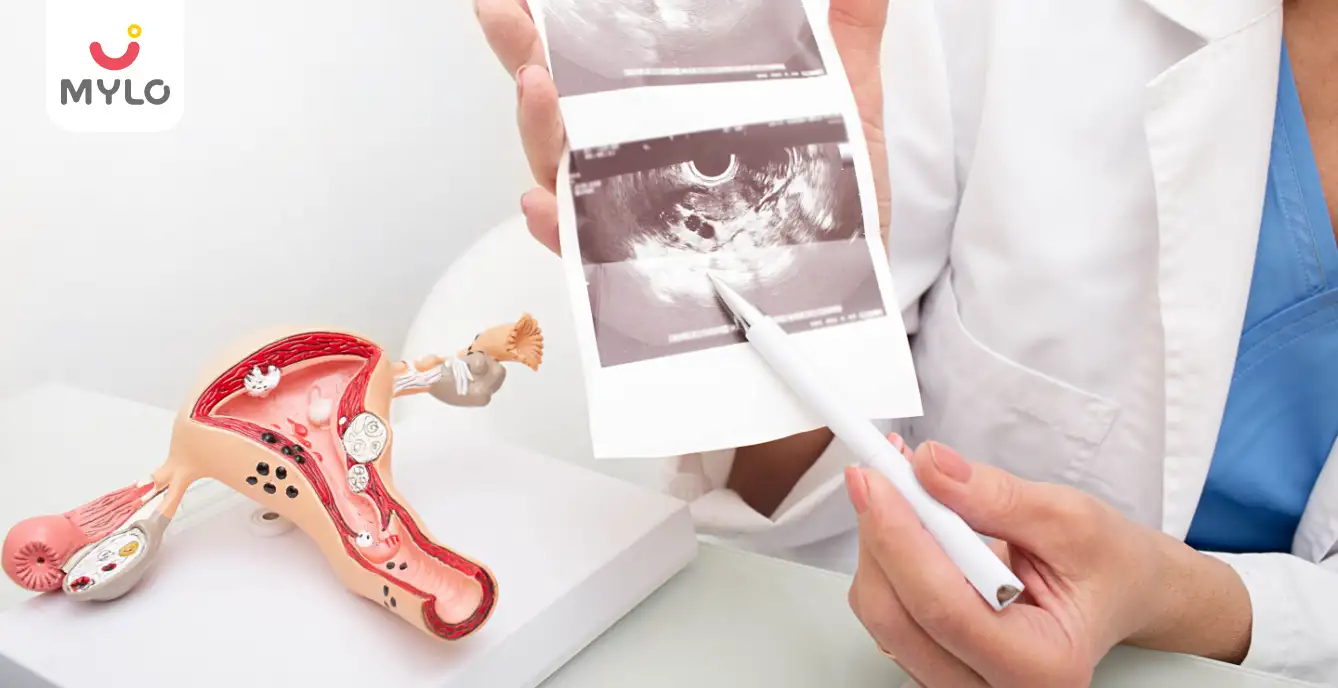
In Vitro Fertilization (IVF)
Endometrial Thickness for IVF: The Ultimate Guide to Successful IVF Outcomes
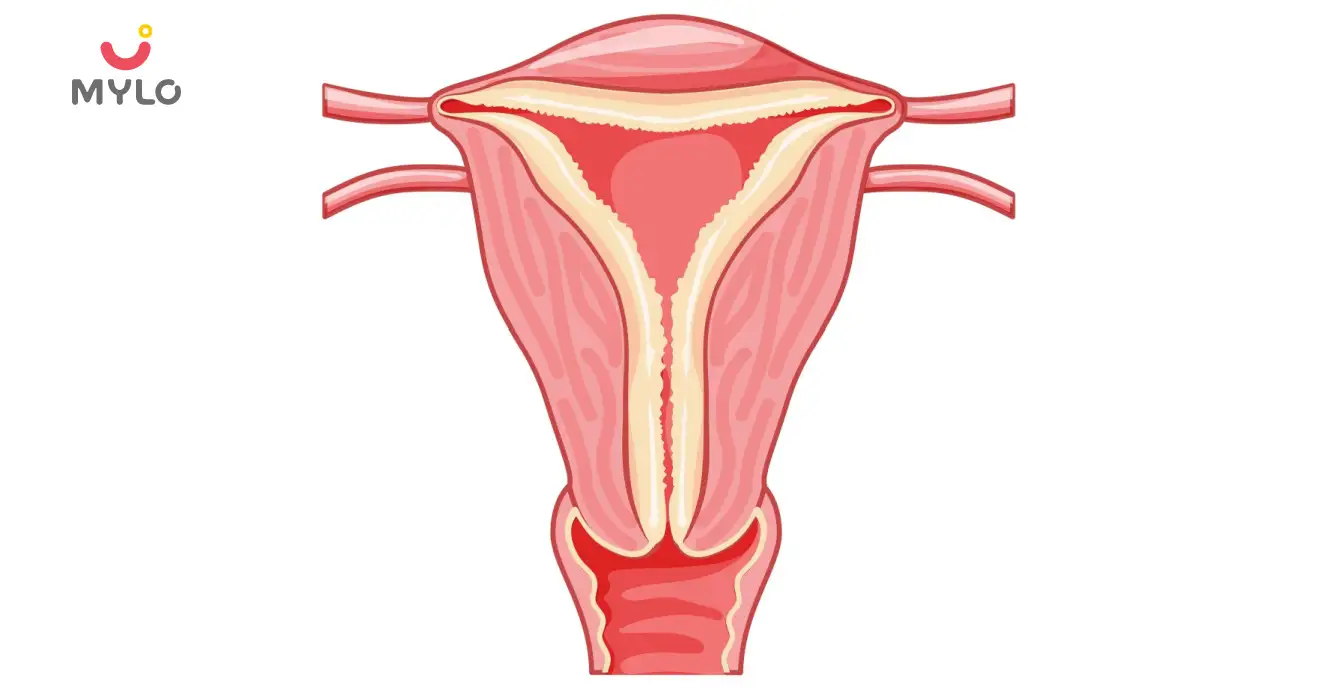
Fertility
Normal Endometrial Thickness: A Key Indicator of Female Fertility
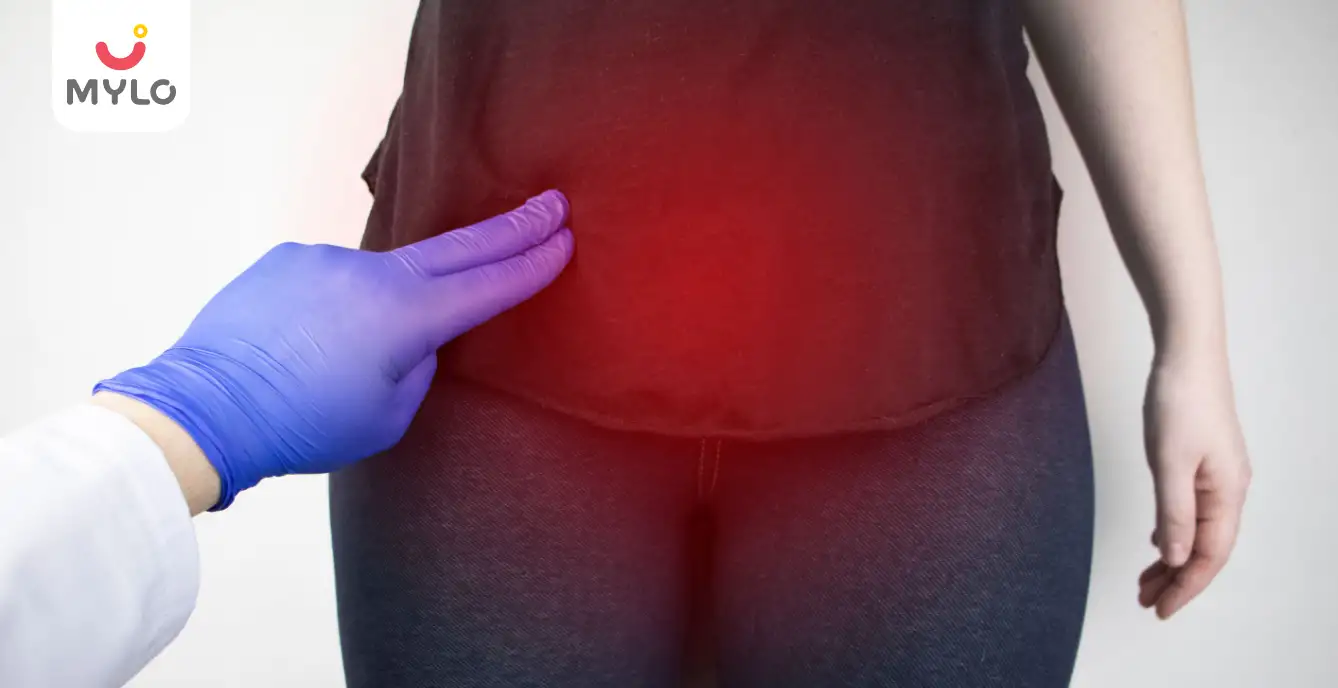
Fibroids
Uterine Artery Embolization: A Non-Invasive Solution for Fibroids
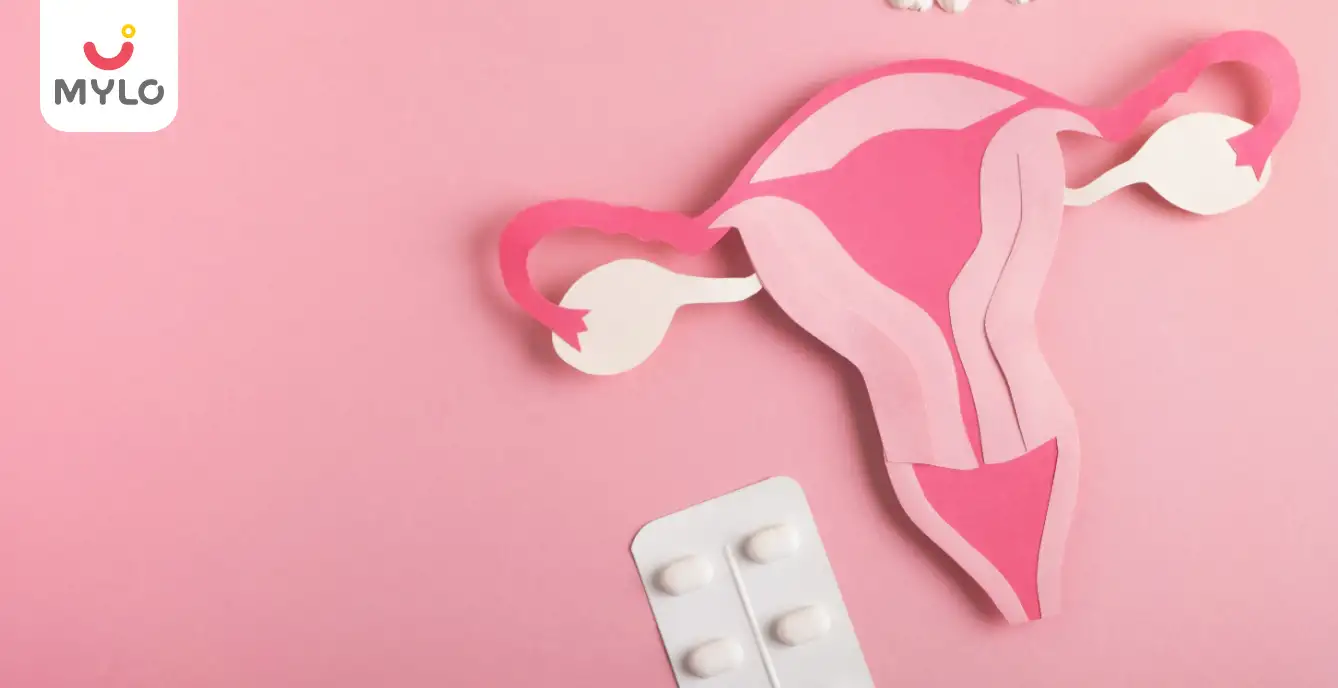
Menstrual Cycle
Deviry 10mg for Menstrual Disorders: Is It the Right Choice for You
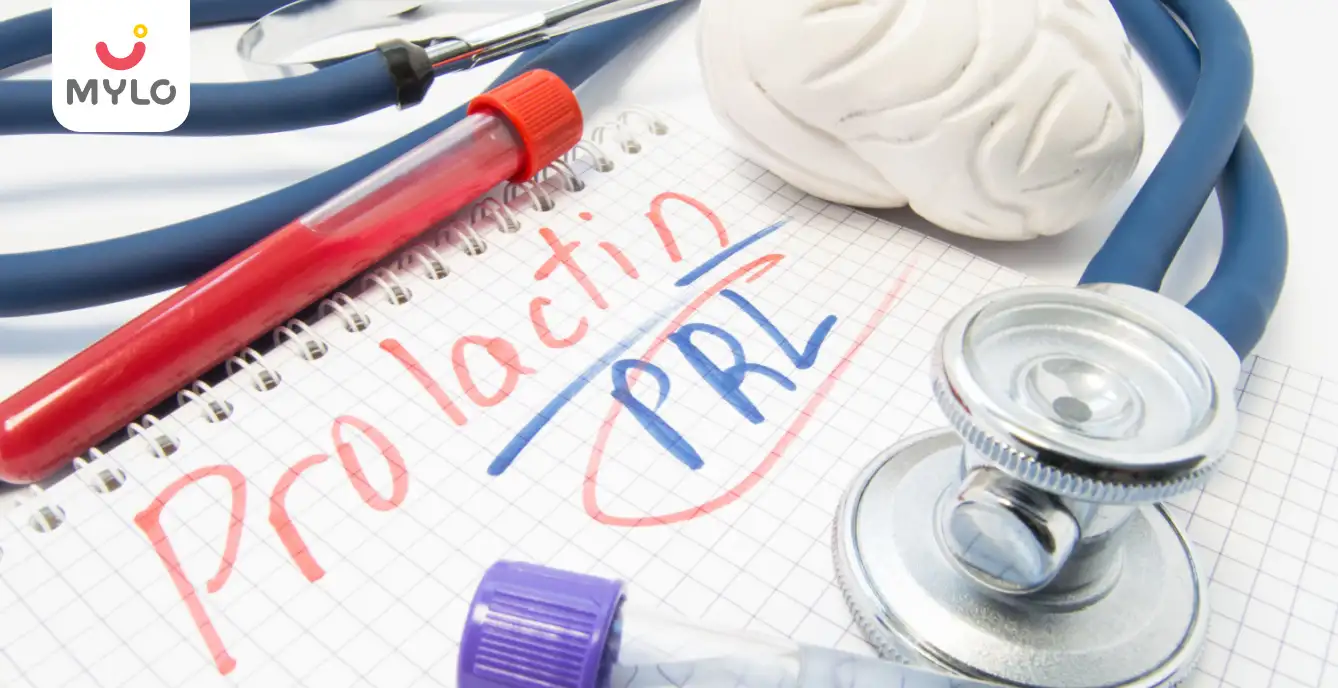
Hormones
Hyperprolactinemia: How High Prolactin Levels Can Affect Your Chances of Conception
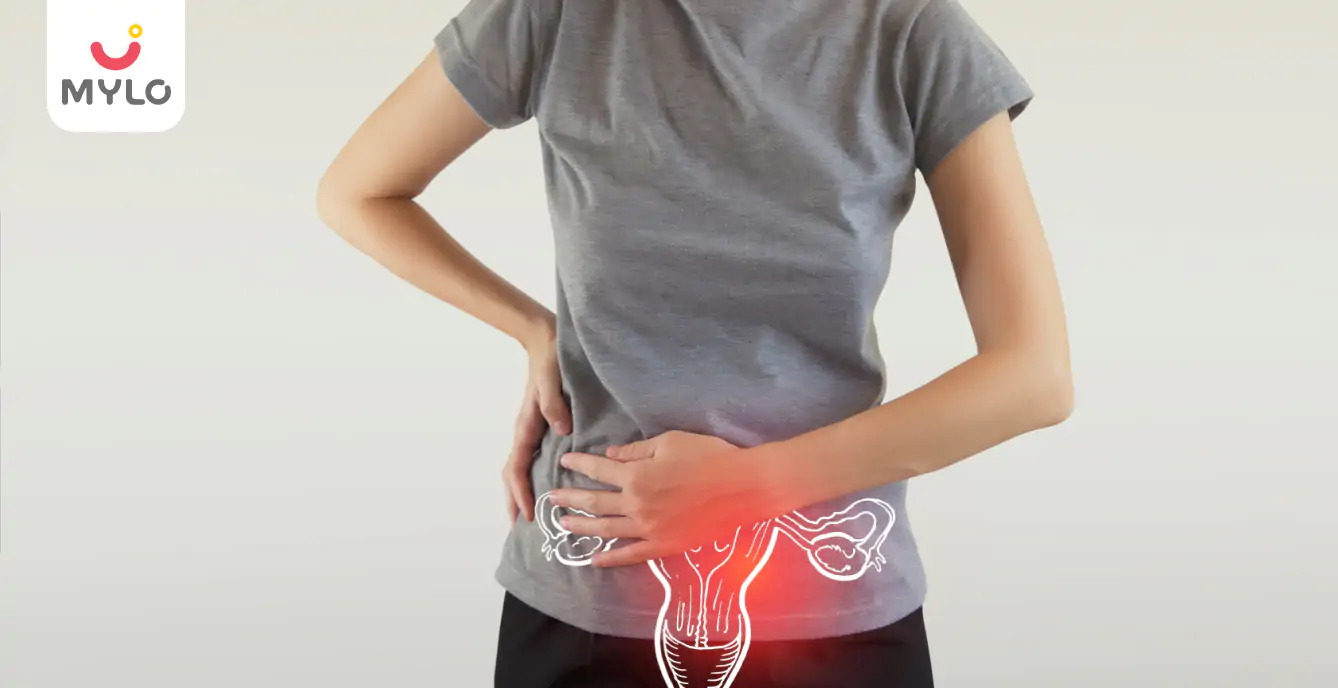
Fibroids
Myomectomy: A Comprehensive Guide to Uterine Fibroid Removal Surgery
- The Hormonal Dance: Understanding Which Hormones Regulate Menstrual Cycle
- 7 home remedies to cure cough and cold in infants
- How to Increase Endometrial Thickness: Your Guide to Science-Backed Tips
- Endometrial Scratching: The Ultimate Guide to Meaning, Benefits and Impact on Conception
- The Ultimate Guide to Buying a Baby Bath Tub for New Parents
- Strawberry in Pregnancy: Why Should This Fruit Be on Your Pregnancy Platter?
- Benefits of Wearing a Pregnancy Belt Before Delivery
- PCOS Treatment in Homeopathy: The Ultimate Guide to Natural Remedies
- Manjistha: Ayurveda's Best-Kept Secret for Health and Beauty
- Metformin for PCOS: How This Medication Can Help Regulate Hormonal Imbalances
- 5 Tips on How to Get Pregnant When You Are Fat
- Do Antibiotics Affect Fertility: Debunking Common Myths and Misconceptions
- Disadvantages of Releasing Sperm Daily: Debunking Common Myths
- Varicocele Surgery Cost: What You Need to Know Before You Go Under the Knife


AWARDS AND RECOGNITION
Mylo wins Forbes D2C Disruptor award
Mylo wins The Economic Times Promising Brands 2022
AS SEEN IN
















At Mylo, we help young parents raise happy and healthy families with our innovative new-age solutions:
- Mylo Care: Effective and science-backed personal care and wellness solutions for a joyful you.
- Mylo Baby: Science-backed, gentle and effective personal care & hygiene range for your little one.
- Mylo Community: Trusted and empathetic community of 10mn+ parents and experts.
Product Categories
baby carrier | baby soap | baby wipes | stretch marks cream | baby cream | baby shampoo | baby massage oil | baby hair oil | stretch marks oil | baby body wash | baby powder | baby lotion | diaper rash cream | newborn diapers | teether | baby kajal | baby diapers | cloth diapers |



